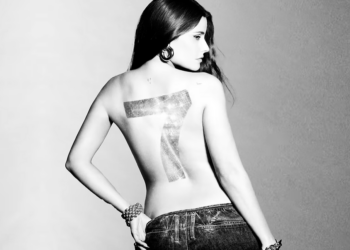U.S. President Donald Trump speaks optimistically of the country reopening for business on May 1.
It’s his dream. It’s also a pipe dream.
At the same time, Trump also commissioned some of the leading minds in pro sports to come out with a blueprint for when sporting events can return to the playing field.
The group he assembled includes NBA Commissioner Adam Silver, MLB Commissioner, Rob Manfred, NFL Commissioner Roger Goodell, NHL Commissioner Gary Bettman, Dana White, the man at the helm of UFC, and WWE founder Vince McMahon.
Three team owners – Robert Kraft of the NFL’s New England Patriots and Jerry Jones of the NFL’s Dallas Cowboys, along with Mark Cuban, owner of the NBA Dallas Mavericks, are also part of this blue-ribbon panel.
All of them will have ideas on the subject, and some of their plans will be well thought out. And it won’t matter in the least.
The sports commissioners aren’t in charge of this situation. The team owners aren’t making the decisions. For all his bluster, Trump also isn’t the one who will be calling the shots.
COVID-19 has the ultimate say in when sports can return.
“It’s hard,” Washington Capitals captain Alex Ovechkin admitted during a video conference call organized by the NHLPA. “We don’t know when this coronavirus is going to end.”
That, right there, is the major issue.
Uncertainty rules the day. In fact, the only definite right now is that if anyone opts to go toe to toe with the virus, the virus is going to win.
At this point, the chances that sports, or online betting opportunities on sports will return at all in 2020 appear to be long.
Plans Being Discussed
The NBA, NHL and MLB have been on hiatus since mid-March, when the coronavirus first began attacking North Americans with authority. All of the major European soccer leagues also came to a halt.
All talk optimistically about a return to their arenas or stadiums. In the case of the NBA and NHL, it would be to finish their seasons and crown champions. For baseball, it would be to launch their season.
Not only are those leagues on hold but it’s not definite that the NFL or NCAA football will kick off their seasons on time in the fall. Already, the NCAA men’s basketball tournament was canceled. Euro 2020 and the Tokyo Summer Olympics are postponed.
Logistical Nightmare
Leagues are in regular contact with their member teams. The board of governors of all major sports continue to map out scenarios by which a season could be played.
Dr. Anthony Fauci, director of the National Institute of Allergy and Infectious Diseases, recently stated that the only way he could see sports back in action this year would be if there were no fans in attendance. But even in that scenario, the logistics of putting together a sporting event are problematic.
The NHL has discussed grouping all the teams in neutral sites. In this plan, all team personnel would be quarantined in hotels when not at the rink. Chefs would prepare meals and teams would be fed in centralized, secured locations. Everyone would be tested regularly.
In layman’s terms, it sounds like a plan that could work, until you remember that these are athletes playing a body contact sport that requires them to be in close quarters.
Suppose a player tests positive. What’s the next step? Are all of his teammates then quarantined for 14 days? Let’s say a player’s wife goes into labor. Is he not going to want to be present for the birth of their child? And if so, is he allowed to return to play again afterward?
Injuries are going to most certainly crop up, especially considering that most of these players will have gone a minimum of two months without skating. The minor leagues won’t be in action. Are teams going to carry taxi squads of surplus players to replace the walking wounded?
Legal Issues
One of the immediate issues that jumps out about Trump’s committee is that there are no players’ union reps involved. That’s a huge flaw, because labor matters figure to be contentious.
In both the NHL and NBA, player contracts expire July 1. Any semblance of a season is definitely going to run past that date. What happens when the contracts expire? Will these players still be insured?
There are other CBA-related issues that certainly could become contentious before athletes return to action.
History Lesson
The 1918-19 Spanish influenza pandemic also first reared its ugly head in the late winter of 1918. There was a lull in the warmer months, and people returned to life as they knew it. However, a more virulent and deadlier strain emerged in the fall. In fact, October 1918 was the worst month for worldwide death tolls.
There’s a concern that COVID-19 could follow a similar pattern.
Don’t Hold Your Breath Waiting For Sports
California Governor Gavin Newsom stated last week that he saw no path toward a return to large gatherings such as sporting events in his state without the existence of a COVID-19 vaccine.
Athletes tend to be positive people. It’s understandable that everyone involved in sports, from fans to players, coaches, media, team executives, owners and overseers of the games want to get playing again.
But wishing for something isn’t going to make it happen. COVID-19 will decide when sports are played again.












